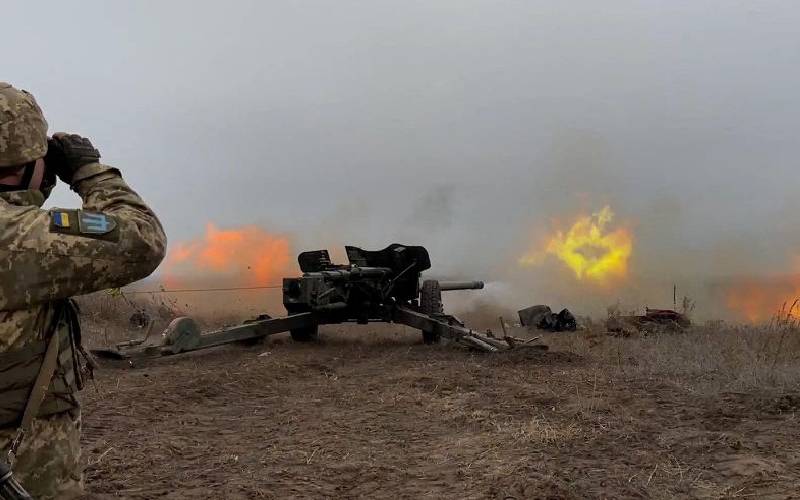×
The Standard e-Paper
Stay Informed, Even Offline

Service members of the Ukrainian Armed Forces hold artillery drills at a shooting range, December 17, 2021. [Reuters]
Many Kenyans have been worried about the possibility of another war of a large scale, following the ongoing Russia-Ukraine conflict.